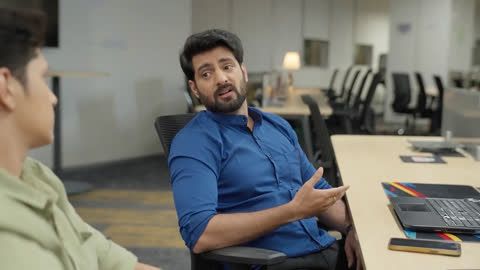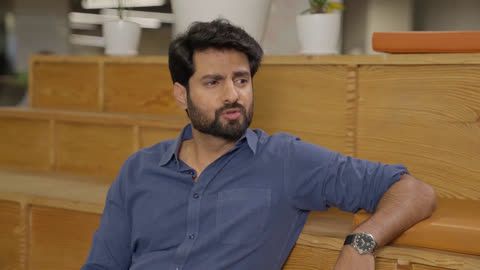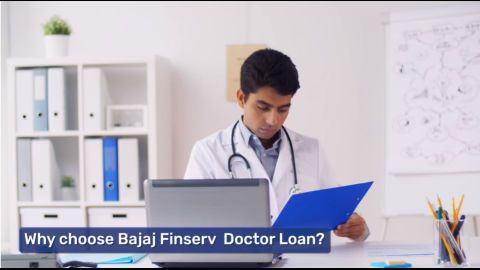To pursue a career in medicine, candidates must meet the following eligibility requirements:
- Educational qualification: To get admission into an MBBS college, you must secure at least 60% in your 12th standard and have a minimum aggregate of 50% marks as required.
- Entrance exam: Must qualify for the National Eligibility cum Entrance Test (NEET-UG)
- Age criteria: Minimum age of 17 years as of December 31 of the admission year
- Additional requirements: Some private medical colleges may have their own entrance tests or eligibility criteria
Steps to become a doctor in India
Here are the steps to follow to become a doctor in India:
Step 1: Complete Class 12 with science (PCB)
- Aspiring doctors must choose the science stream in Class 11 and study physics, chemistry, and biology to meet medical college eligibility.
Step 2: Appear for medical entrance exams
- Qualifying for NEET-UG is mandatory for admission to MBBS and BDS courses in India. Some institutes may also require additional exams or interviews.
Step 3: Secure admission to a medical college
- Based on NEET scores, candidates can apply for government and private medical colleges through national or state-level counselling.
Step 4: Complete an MBBS degree
- The MBBS (Bachelor of Medicine and Bachelor of Surgery) course lasts 5.5 years, including 4.5 years of academic study and one year of internship.
Step 5: Complete a mandatory internship
- Internships provide hands-on experience in hospitals, allowing students to work under senior doctors and gain practical knowledge.
Step 6: Obtain medical registration
- After completing the MBBS and internship, graduates must register with the National Medical Commission (NMC) or the respective State Medical Council to legally practice medicine.
Step 7: Pursue specialisation (optional)
- Doctors can opt for postgraduate courses (MD/MS/DNB) or super specialisations (DM/MCh) in various medical fields. Those looking to enhance their expertise can explore courses after MBBS for advanced career opportunities.
Medical entrance exams in India
Aspiring medical students must clear entrance exams to secure admission to reputed institutions. The major entrance tests include:
- NEET-UG: Conducted by NTA for admission to MBBS, BDS, and AYUSH courses
- NEET-PG: Required for postgraduate medical admissions (MD/MS/DNB)
- INI-CET: Conducted for AIIMS, JIPMER, PGIMER, and NIMHANS postgraduate admissions
- FMGE: Screening test for foreign medical graduates to practice in India
Top medical colleges in India
Here’s a table with the list of top medical colleges in India:
Rank
|
College
|
Location
|
Total Seats
|
NEET Cut-off Range
|
Highlights
|
1
|
All India Institute of Medical Sciences (AIIMS)
|
New Delhi
|
107
|
720–730
|
Premier institution with top-tier faculty and research output
|
2
|
Post Graduate Institute of Medical Education and Research (PGIMER)
|
Chandigarh
|
100
|
700–720
|
Centre of excellence for advanced medical training and research
|
3
|
Christian Medical College (CMC)
|
Vellore
|
100
|
700–715
|
Known for strong rural outreach and clinical training
|
4
|
Maulana Azad Medical College (MAMC)
|
New Delhi
|
250
|
710–725
|
Reputed for clinical exposure and long-standing history
|
5
|
Kasturba Medical College (KMC)
|
Manipal
|
250
|
690–705
|
Modern infrastructure with global student base
|
6
|
Armed Forces Medical College (AFMC)
|
Pune
|
130
|
680–700
|
Defence-linked, disciplined training environment
|
7
|
JIPMER (Jawaharlal Institute of Postgraduate Medical Education)
|
Puducherry
|
200
|
680–695
|
Focus on research and public health
|
8
|
King George’s Medical University (KGMU)
|
Lucknow
|
250
|
685–700
|
Comprehensive academic and clinical programme
|
9
|
Sri Ramachandra Medical College
|
Chennai
|
250
|
675–690
|
Advanced medical facilities and experiential training
|
10
|
Government Medical College (GMC)
|
Nagpur
|
150
|
670–685
|
State-funded, strong hospital exposure
|
11
|
Indira Gandhi Institute of Medical Sciences (IGIMS)
|
Patna
|
100
|
665–680
|
Emerging institution with growing research profile
|
Skills required to become a doctor
A successful doctor must possess the following essential skills:
- Strong medical knowledge: Understanding of human anatomy, diseases, and treatments
- Analytical and problem-solving skills: Diagnosing illnesses and determining the best course of treatment
- Communication skills: Explaining medical conditions and procedures clearly to patients
- Empathy and patience: Handling patients with care and providing emotional support
- Attention to detail: Ensuring accuracy in diagnosis, prescriptions, and medical procedures
- Adaptability: Keeping up with medical advancements and new treatment methods
Career opportunities after becoming a doctor
A medical degree offers various career paths in India:
- General practitioner (GP): Providing primary healthcare and treatment to patients
- Specialist doctor: Pursuing MD/MS in fields like cardiology, neurology, or orthopaedics
- Surgeon: Performing complex surgeries in specialised areas such as neurosurgery or oncology
- Medical researcher: Conducting research on diseases, treatments, and new drugs
- Professor/lecturer: Teaching medical students in colleges and universities
- Government medical officer: Working in government hospitals and public health sectors
- Private practice: Running independent clinics or hospitals for medical services
Cost of becoming a doctor in India
The cost of medical education varies based on the institution type:
- Government medical colleges: Rs. 1–5 lakh for the entire MBBS course
- Private medical colleges: Rs. 25 lakh–1 crore for an MBBS degree
- Postgraduate courses (MD/MS): Rs. 5 lakh–50 lakh depending on specialisation and college
- Additional expenses: Books, hostel fees, and coaching for entrance exams add to the overall cost
Conclusion
Becoming a doctor in India is a challenging yet rewarding journey, requiring dedication, hard work, and financial investment. From clearing NEET-UG to obtaining an MBBS degree and completing internships, each step prepares candidates for a fulfilling career in medicine. As the cost of medical education continues to rise, healthcare finance plays an important role in helping students manage these expenses.
However, these costs can soon snowball, to manage educational expenses, students can opt for a doctor loan or a professional loan, which provides financial support for tuition fees, accommodation, and other expenses. With Bajaj Finserv Doctor Loan, students can confidently pursue their dream of becoming a successful doctor.





